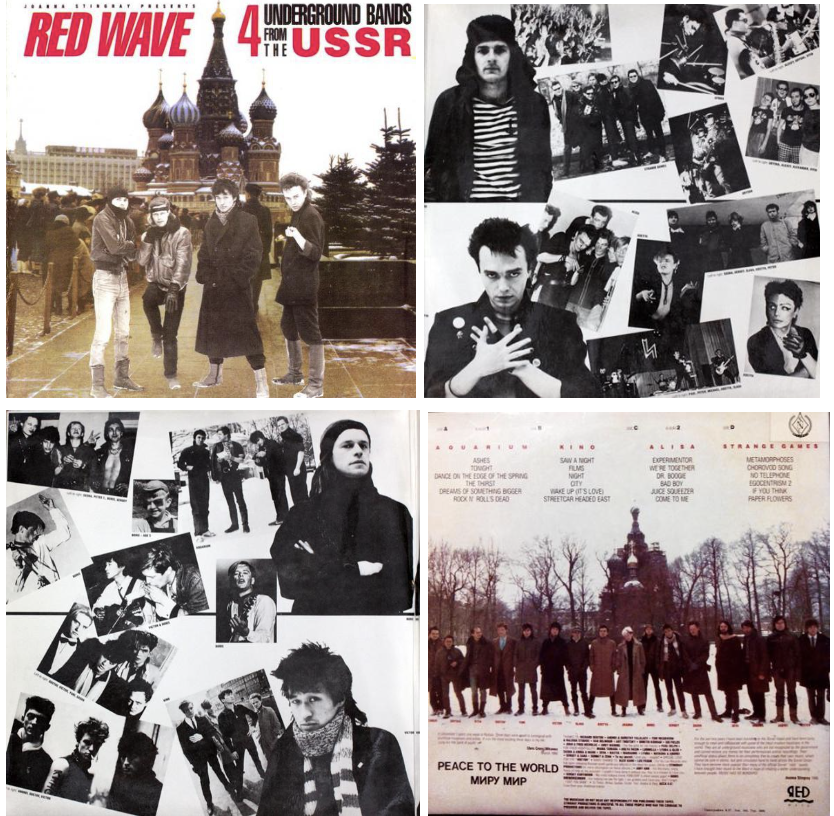Red Wave: 4 Underground Bands from the USSR

Red Wave: 4 Underground Bands from the USSR is a split double album, originally recorded on vinyl, that marked the first release of Russian rock music in the West. It was released on 27 June 1986 in only 15,000 copies by the Australian indie rock label Big Time Records, and features compositions from four Leningrad-based rock bands: Aquarium, Kino, Alisa, and Strange Games (Strannye Igry). Although the record presented these groups as “underground,” all four members of the officially sanctioned Leningrad Rock Club and enjoyed a fair degree of popularity among Soviet rock music fans in Leningrad and Moscow.
The effort to release Red Wave was singlehandedly spearheaded by Joanna Stingray (born Joanna Fields in 1960), an aspiring American rock singer, who, in 1984—before the official onset of General Secretary Mikhail Gorbachev’s (1931-2022) perestroika—traveled to Leningrad, where she was introduced to the flourishing amateur rock music community. Having formed enduring friendships with some of Russian rock’s most recognizable personalities, including Boris Grebenshchikov (1953-), Viktor Tsoi (1962-1990), Konstantin Kinchev (1958-), and Sergei Kuryokhin (1954-1996), Stingray fashioned herself as both patron and ambassador of Soviet rock music.
For nearly a decade, she shuttled between the US and the USSR, smuggling musical instruments and recording equipment to the Leningrad rock community, in this way ensuring and sustaining its artistic endeavors. Stingray envisioned the album as a cultural weapon to end lingering Cold War tensions between the US and the USSR, a tool for catapulting Soviet rock musicians to international fame. The record’s back-cover image contains the Soviet anti-war slogan “Peace to the World” (Miru mir), which was gaining renewed traction among westward-looking Soviet youth, weary of the confines of the Iron Curtain.
The album’s release made headlines in international popular music publications, reportedly leading Gorbachev himself to wonder: “Why is it that such albums come out in America, but not here?” This question resulted in an order to the then-Soviet Minister of Culture, Vasily Zakharov (1934-2023), to work with amateur popular musicians. Red Wave was also used as a diplomatic tool for US immigration services, for instance when Stingray sent a copy to President Ronald Reagan (1911-2004) in an effort to bring Leningrad musicians on tour to the United States, as well as resolve the bureaucratic logistics of her impending marriage to Kino guitarist Yuri Kasparyan (1963-).
Red Wave thus epitomizes the often contradictory, yet nevertheless culture-shifting sociopolitical mechanisms that emerged through Gorbachev’s reforms, which, in part, sought to promote domestic cultural production that would hasten the USSR’s rapprochement with the West. Conceived as a clandestine collaborative project on the peripheries of music production in both superpowers, the album managed to tear a small, yet noteworthy hole in the seemingly impenetrable political wall separating them—heralding the monumental changes looming on the horizon.